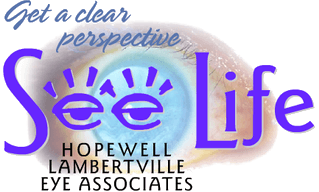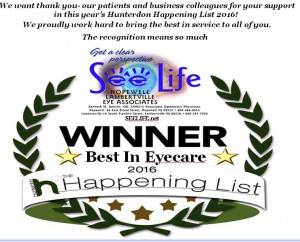
Nothing beats the allure of a shimmering swimming pool on a hot summer’s day. But before you dive in, make sure your eyes are adequately protected from the dangers that lurk under the surface.
Wear Sunglasses
- Our skin isn’t the only part of our body that needs to be shielded from the sun. Studies have shown that the harmful UV rays that burn our skin can also be linked to the formation of cataracts and macular degeneration later in life.
Wear Wide Brimmed Hats
- Break out your big, floppy hat to show off while you lounge by the pool or at the beach. Hats can help to block any sun that may sneak in around the edges of your sunglasses.
Wear Goggles When Swimming
- Swimming pools, oceans and lakes are all full of microscopic organisms. When submerged in these waters, our eyes are become vulnerable to them. This vulnerability can lead to serious eye infections. The use of goggles can help prevent infection-causing water from entering the eyes.
Avoid Contact Use When Swimming
- Contacts are often used more in the summer because of the convenience that they provide to us. It is important to try to avoid wearing contacts when swimming in the pool. As we have learned, swimming pools and other bodies of water have many microscopic organisms living in them. These organisms, bacteria, fungus, protozoa and chemicals can find their way into your porous contact lenses and cause eye serious sight threatening eye infections. If you must wear your contact lenses while swimming, make sure that you wear goggles to protect your eyes from the water and switch to single use daily disposable lenses.
Exception Single Use Lenses for Swimming
- With single use daily disposable lenses – the risk of infection is greatly reduced. We still highly recommend the use of well fitting goggles, but with the single use lenses you will discard it after your return from the beach, lake, or pool. With these lenses you can enjoy excellent vision – enjoy your day – and with reduced risks. There are even sunglass single use contact lenses called Atlius. https://altiusvision.com/ These are great for water sports wear it may be difficult to wear sunglasses during your activity.
Avoid Lotions around the Eyes
If you get sunscreen in your eyes, It is recommended to use skin protection of no less than 15 SPF to 50 SPF. However, the chemicals can irritate and cause significant eye damage. While it does cause a burning, stinging sensation, it won’t cause any permanent eye damage if addressed immediately and properly.
The best way to keep your eyes sunscreen-free is through careful application. Apply lotion sunscreen carefully and slowly to your face, taking care to avoid your eyes and eyelids. Mineral based sunscreens, such as ones with titanium dioxide or zinc oxide, are best since they stick to your skin better and are less likely to run into your eyes.
Avoid using spray-on sunscreens on your face. If you use spray-on sunscreen on your body, be sure to avoid directing the spray in the direction of your face. Also, be aware of your surroundings and the direction of the wind to avoid accidentally spraying someone else in the face.
Keep sunblock containers away from children and be sure to apply their sunscreen for them. Don’t let your child apply sunscreen themselves, since they might rub their eyes without fully cleaning their hands.
The use of a “chap stick balm with 15 t0 30” allows for directed and careful placement of SPF protection around the nose and on the skin below the eyes. Be careful on applying any of the balm to the upper eyelids, fore when you perspire it can drain into the eyes, as would any lotion.
HOW DO I GET THE SUNSCREEN OUT OF MY EYE?
The best thing you can do for you or your child’s eyes is to immediately flush them with water. A shower is ideal, but any steady stream of water is good. Flush your eyes for 15-20 minutes, blinking your eyes regularly while you do. If you wear contacts, make sure to remove them first.
Your eye may still be a bit irritated and red once you’ve completed the flushing process. However, this is likely just because your eye is still irritated from when you had sunscreen in it. It may also be reacting to the constant flushing. Give it another 15 minutes or half an hour to see if your eye completely recovers. A cold compress can also help soothe the pain. Use preservative-free artificial tears frequently for the next few days. Avoid using eye drops with preservatives, since the chemicals could cause further irritation.
In many cases, you’ll be fine, with the irritation disappearing completely after a few days. However, if your eye is still irritated, make an appointment with an eye doctor for a complete examination.
Let’s Be safe out there - and have fun.
This blog is for informational purposes only. For specific medical questions, please consult with the doctors at Hopewell - Lambertville Eye : www.seelife.net. Hopewell 609-466-0055 Lambertville 609-397-7020




